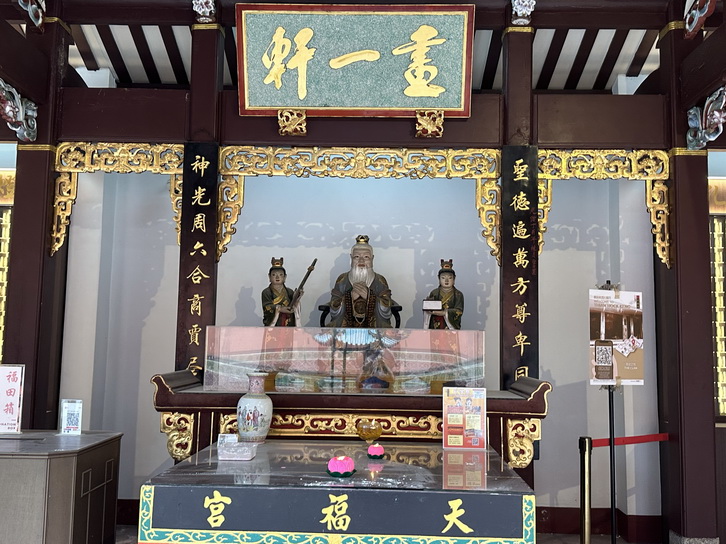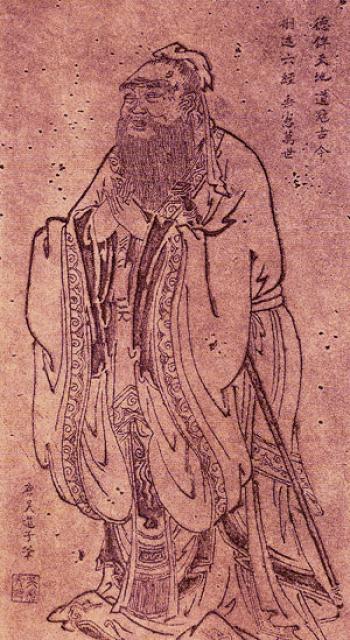|
Confucius (551–479 BCE) was a Chinese philosopher, teacher, and
political figure whose teachings have profoundly influenced East Asian
culture and philosophy. His life, core values, and the contributions of
his disciples are central to understanding Confucianism. Below is an
explanation of his life, core values, and notable disciples, along with
suggestions for videos that illustrate his teachings.
Confucius's Life
-
Early Life: Confucius was born in 551 BCE in the
state of Lu (modern-day Shandong Province, China). His family was of
modest means, and his father died when he was young. Despite
financial struggles, he pursued education diligently.
-
Career: Confucius worked in various government
roles, including as a teacher, administrator, and advisor. He sought
to reform society by promoting moral integrity and good governance.
-
Travels and Teaching: Disillusioned by the
corruption and moral decline of his time, Confucius spent years
traveling across China, teaching his philosophy to anyone willing to
learn. He emphasized the importance of personal and governmental
morality.
-
Legacy: Confucius's teachings were compiled by his
disciples in the Analects (Lunyu), a collection of sayings
and ideas that became the foundation of Confucianism.
Core Values of Confucius
Confucius's philosophy revolves around ethical living, social harmony,
and moral leadership. Key values include:
-
Ren (仁) - Benevolence/Humaneness:
-
The highest virtue, emphasizing compassion, empathy, and
kindness toward others.
-
Example: Treating others as you would like to be treated.
-
Li (礼) - Ritual/Propriety:
-
Proper conduct and respect for traditions, rituals, and social
norms.
-
Example: Observing ceremonies and showing respect to elders.
-
Xiao (孝) - Filial Piety:
-
Yi (义) - Righteousness:
-
Moral disposition to do good and act justly.
-
Example: Standing up for what is right, even when it is
difficult.
-
Zhi (智) - Wisdom:
-
Xin (信) - Integrity:
-
Junzi (君子) - The Ideal Gentleman:
Videos Illustrating Confucius's Values
Here are some video resources that explain Confucius's life and values
with examples:
-
"Who Was Confucius?" by TED-Ed:
-
"Confucius: The Sage of China" by National Geographic:
-
"Confucianism: The Basics" by Crash Course World History:
-
"The Analects of Confucius" by The School of Life:
Famous Disciples of Confucius
Confucius had many disciples who helped spread his teachings. Some of
the most notable include:
-
Yan Hui (颜回):
-
Confucius's favorite disciple, known for his moral integrity and
humility.
-
Contribution: Exemplified the ideal of ren (benevolence)
and inspired others through his virtuous life.
-
Zengzi (曾子):
-
Zilu (子路):
-
Zigong (子贡):
-
Mencius (孟子):
-
Although not a direct disciple, Mencius is considered the
"Second Sage" of Confucianism.
-
Contribution: Expanded on Confucius's ideas, particularly the
concept of ren and the innate goodness of human nature.
How Disciples Contributed
-
Preservation of Teachings: Disciples recorded
Confucius's sayings in the Analects, ensuring his ideas
were passed down to future generations.
-
Spread of Confucianism: They traveled and taught,
spreading Confucian values across China and beyond.
-
Development of Philosophy: Disciples like Mencius
and Xunzi further developed Confucian thought, making it more
accessible and applicable to different contexts.
By studying Confucius's life, core values, and the contributions of his
disciples, we gain insight into a philosophy that continues to shape
ethical and social systems worldwide. The suggested videos provide
engaging ways to explore these concepts further.
 |
|
孔子

孔子殿,供奉的就是我们大家熟悉的孔子,儒家思想创始人,伟大的思想家和教育家,对中国文化和社会有深远影响。
孔子原名孔丘,字仲尼,出生于春秋末期的鲁国,现在的山东,孔子自小爱读书,可是家境贫寒,那时候去学堂读书是有钱人子弟才可以,孔子就觉得读书不应该是有钱人才可以,应该大家都可以去读书,所以发奋自学,进入仕途,在鲁国当官,官场不顺,后来辞官开班授课,实现有教无类的普及教育,带领学生周游列国,为现代教育的知心合一开创先河,据论语记载孔子学生三千,闲事72,
现在大家看这个孔子殿,孔子端坐中间,金冠宽袍,慈眉善目,面带笑容,左右两弟子,孔子左侧的是孔门最好学的颜回,右侧持剑者是孔门文武双全的子路,看孔子手势,两掌叠放,掌心朝内,左手在外,右手在内,这事古代人相见礼,表示虔诚恭迁之意,易经上的爻字,也是甲骨文中的教字的写法,代表孔子有教无类,平等和谐的家族思想
拜孔子在中国非常常见,拜孔子当然是因为孔子乃至圣先师,万师之表。拜孔子的由来是古代科举考试的四书五经的核心内容和学士内容有孔子及其弟子撰写,科举考试是孔子有教无类思想的延续,为寒门弟子以及下层社会提供上升的渠道,考生们拜孔子是对孔子的智慧和知识的敬拜,同时表示对饮水思源的感恩。
那大家现在在这边看到拜孔子就说明拜孔子在新加坡也是有的,我之前有个同学就问我豆腐福建话怎么说,我就一脸疑惑问她,怎么了?她说孩子要会考了,成绩老师跌宕起伏的,临场发挥很重要,老母亲只能去拜拜孔子,给点智慧吧,这边拜孔子用葱(聪明),蒜(会算术),芹菜(勤奋),还有个豆腐不知道什么意思,就问你了,后面我就给问了下豆腐,福建因(到福)。如果大家有考试,临时抱佛脚还不安心,就拜拜我们孔圣人吧。(带大家去观音殿)

|

![]()

